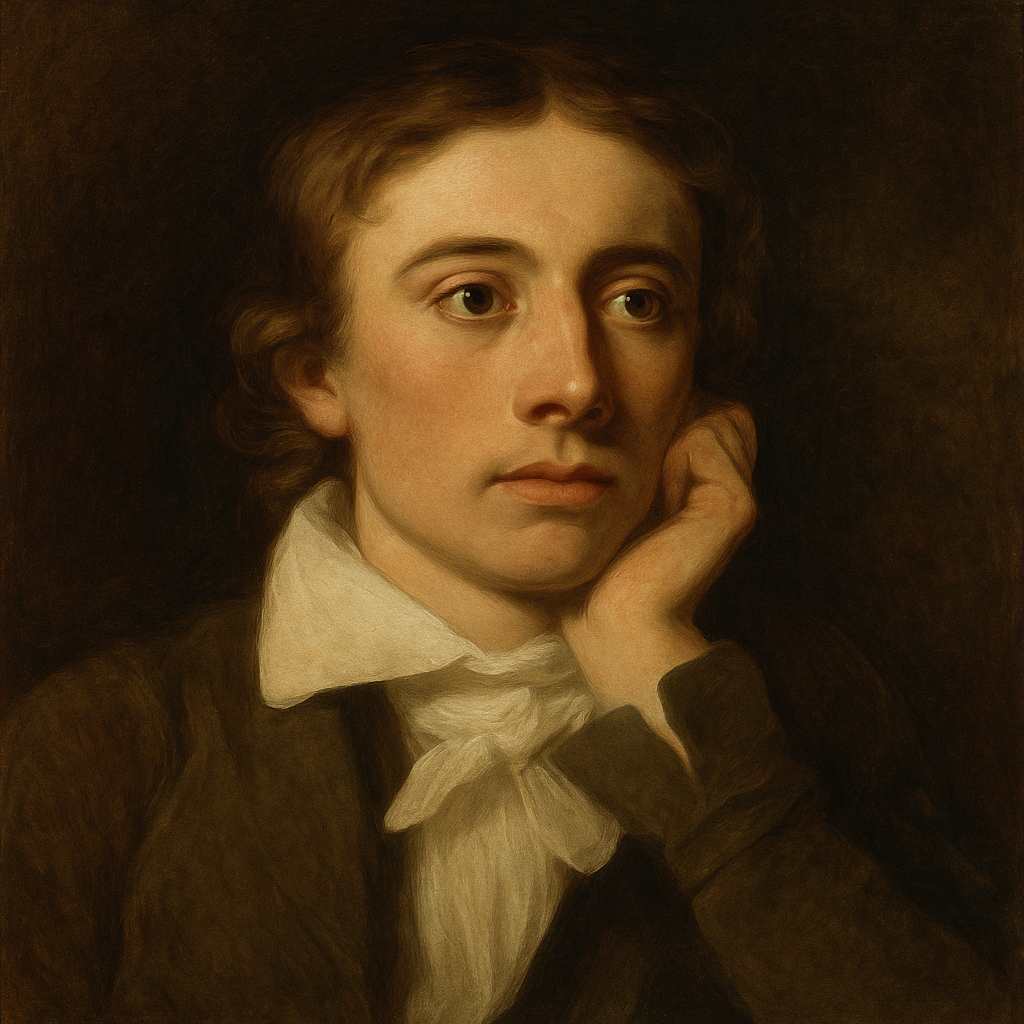Nymph of the downward smile
John Keats
1795 to 1821

Nymph of the downward smile and sidelong glance,
In what diviner moments of the day
Art thou most lovely? — when gone far astray
Into the labyrinths of sweet utterance,
Or when serenely wand'ring in a trance
Of sober thought? — or when starting away
With careless robe to meet the morning ray
Thou spar'st the flowers in thy mazy dance?
Haply 'tis when thy ruby lips part sweetly,
And so remain, because thou listenest:
But thou to please wert nurtured so completely
That I can never tell what mood is best.
I shall as soon pronounce which Grace more neatly
Trips it before Apollo than the rest.
John Keats's Nymph of the downward smile
I am busy working to bring John Keats's "Nymph of the downward smile" to life through some unique musical arrangements and will have a full analysis of the poem here for you later.
In the meantime, I invite you to explore the poem's themes, structure, and meaning. You can also check out the home page for other musical arrangements or learn more about John Keats's life and contributions to literature.
Check back soon to experience how "Nymph of the downward smile" transforms when verse meets melody—a unique journey that makes poetry accessible, engaging, and profoundly moving in new ways.
Want to join the discussion? Reopen or create a unique username to comment. No personal details required!



Comments
No comments yet. Be the first to comment!